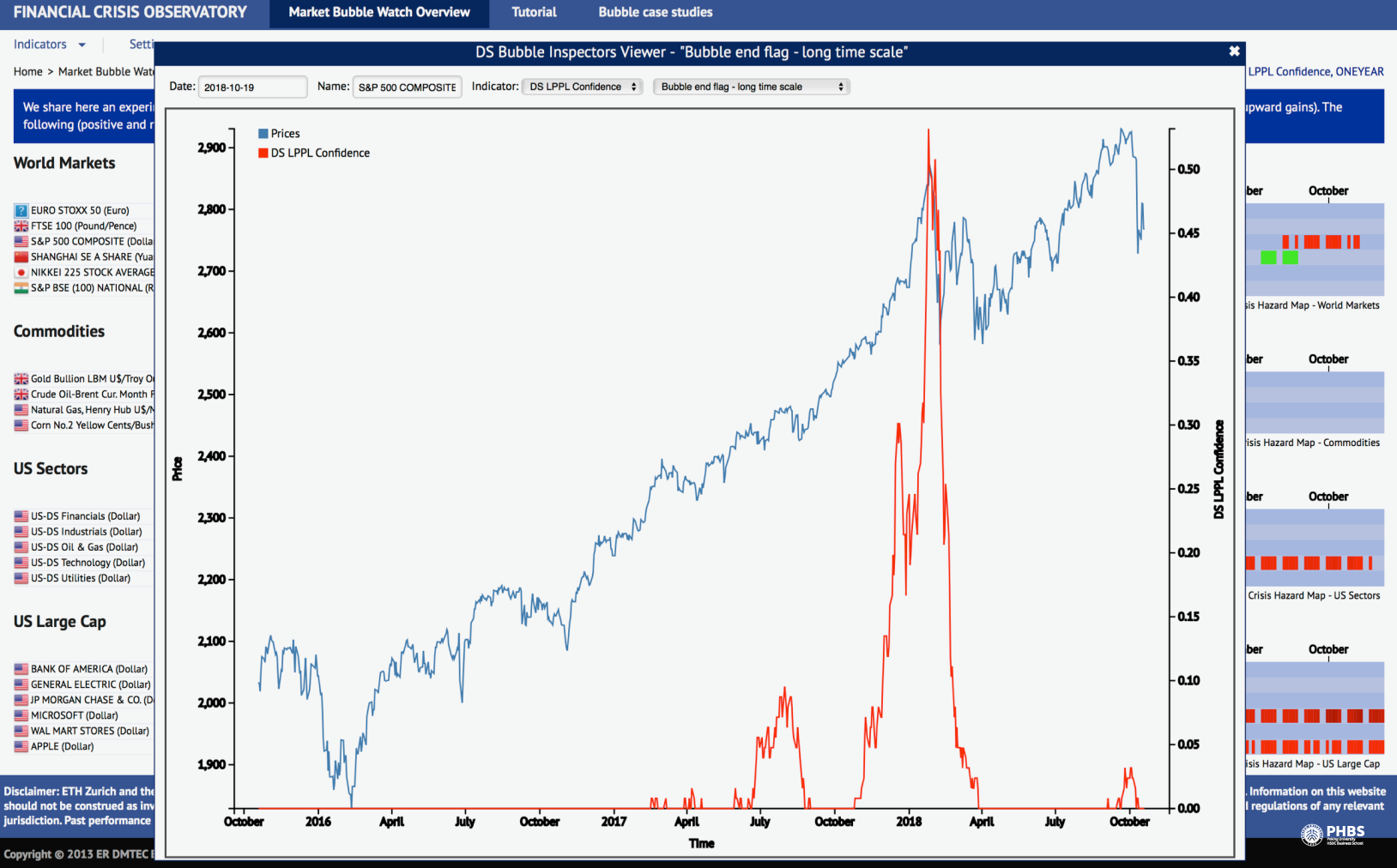By Ju Chenchen of The HSBC Financial Research Institute at Peking University
Edited by Sophie Wu
Professor Didier Sornette, author of Why Stock Markets Crash, is on the Chair of Entrepreneurial Risks at the Swiss Federal Institute of Technology Zurich (ETH Zurich) since March 2006. He is also a professor associated with both the department of Physics and the department of Earth Sciences at ETH Zurich, and a professor of finance at the Swiss Finance Institute. As a world class economist, physicist and geophysicist, Professor Didier Sornette has long been working on the prediction and control mechanism of extreme events and crises, bubbles and boom-burst in finance and economics.
Considering the sharp decline in American stock market recently, we had invited Professor Didier Sornette to join an exclusive interview for interpretation and prediction regarding the potential trend and coming regime of the US stock market.

Q1: After nine years of bull market, American stock market has now illustrated a falling trend. Some people consider this as a good time for investment, while some treat it as a signal for crash. What is your opinion on this question? Besides, from your point of view, what causes recent sharp decline of American stock market? What will be the following trend of American stock, will it keep falling?
Professor Didier Sornette: It is not correct to write that the US market is in a falling trend. What has changed since February 2018 is a regime shift from very low priced risks to a risk-on regime with high volatility and higher VIX and other market risk measures.
I see the continuation of a large volatility regime with possible strong corrections followed by solid rebounds. This is an opportunity for investors only for those with good risk appetite. The recent sharp decline can be interpreted as a flight to quality and value on large cap as opposed to low cap growth stocks that have underperformed. This is rather typical of a market regime with high vol and large uncertainty.
Q2: Is there any signal indicating this round of American stock crash? Can investors judge and avoid such loss through some premonitions? Do you have any suggestions for investors?
Professor Didier Sornette: Our Financial Crisis Observatory (FCO) had a clear signal that the bullish regime in the US stock market of 2016 and 2017 was due to a change of regime. This was based on our Log-Periodic Power Law Singularity (LPPLS) methodology. Thus, yes, this regime shift was predictable and has been predicted by our FCO.
We are now in a high volatility regime, with moreover high nonlinear jump risks, and one should underweight the stocks that are the most overweighted in cap active funds.
Q3: In the beginning of Why Stock Markets Crash, you mentioned several famous market crashes (crises) in the global history, how can we prevent crises from these experiences?
Professor Didier Sornette: We, at an individual level, cannot prevent such crisis. Only central banks and regulators can take measures to prevent or mitigate crises. In general, the central banks in the West do not do much to prevent crises and they are in general too late for useful interventions.
The central banks act more like firefighters in the aftermath of crises. A preemptive approach would consist in making financial speculation more expensive and difficult to perform, like with the Tobin tax idea which can have some value if well implemented. The separation of different financial investment types can also stabilise markets as was the case under the Glass-Steagal act.
Q4: The Log-Periodic Power Law (LPPL) model has been mentioned in the book, can we predicate current stage of US stock market based on this model? What impact will be bought to the US if American stock bubbles burst?
Professor Didier Sornette: As I wrote above, the LPPLS methodology allows us to predict the change of regime that occurred in Feb 2018 (see below chart). I expect the market to continue in a nonlinear high vol and jump risk regime, going sideway over the next year.
Click here to read more: An Exclusive Interview to Professor Didier Sornette: Demystify Truths from the Misleading Signs
















